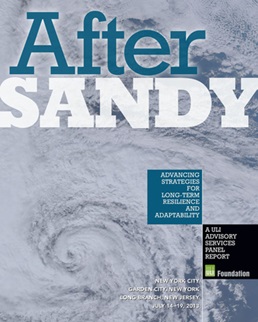After Sandy

Advancing Strategies for Long-Term Resilience and Adaptability
After Sandy: Advancing Strategies for Long-Term Resilience and Adaptability offers guidance on postdisaster rebuilding and building in anticipation of future disasters in a way that helps preserve the environment, boost economic prosperity, and foster a high quality of life. This report, which came out of a week-long advisory-services panel, acknowledges that the increased frequency of severe weather events, as well as rising sea levels, are compelling the real estate industry to address climate change by working with the public sector to implement adaptive measures that better protect both the built and natural environment.
Author: Urban Land Institute
Book Summary: After Sandy: Advancing Strategies for Long-Term Resilience and Adaptability offers guidance on postdisaster rebuilding and building in anticipation of future disasters in a way that helps preserve the environment, boost economic prosperity, and foster a high quality of life. This report, which came out of a week-long advisory-services panel, acknowledges that the increased frequency of severe weather events, as well as rising sea levels, are compelling the real estate industry to address climate change by working with the public sector to implement adaptive measures that better protect both the built and natural environment.
Author: Urban Land Institute


